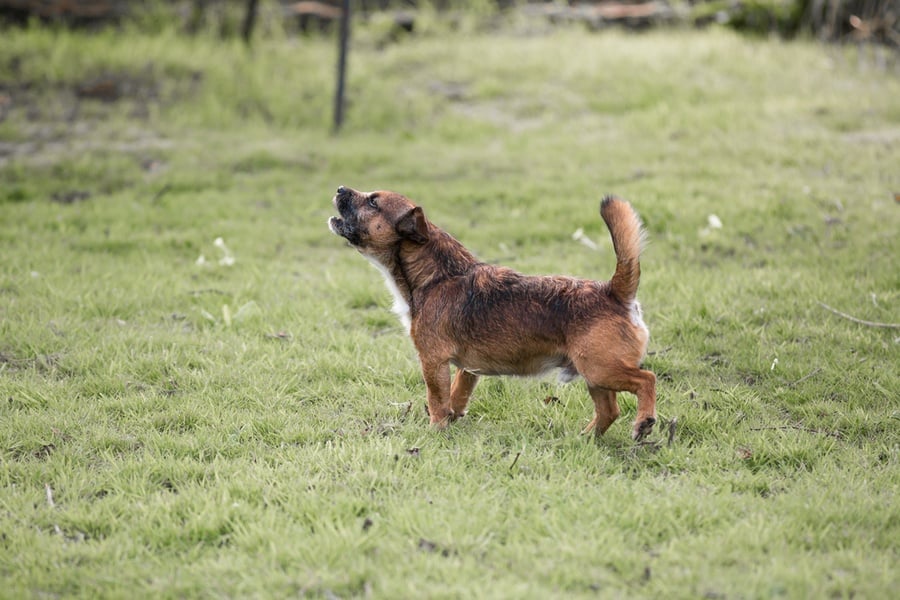“This post contains affiliate links, and I will be compensated if you make a purchase after clicking on my links.”
Understanding Your Dog’s Barking:

There are 6 different known types of barking in dogs. They are excitement barking, warning barking, fear barking, guard barking, frustrated barking and learned barking.
Recordkeeping is an excellent way to understand what your dog is trying to communicate – the most important step in solving problem barking. Dog owners that are concerned about excessive, uncontrollable, or repetitive barking, or those that have received complaints from neighbors, should immediately begin documenting exactly when, why, and how their dogs bark.
In a notebook, keep a record of each time your dog barks. Record notations on the length of time the dog has been barking, the circumstances as to why the dog is barking, the object or person that the dog is barking at, where the dog is at that moment and all other details relevant to the event. Also note the sound of the bark itself – is it high pitched or deep, are there several short barks in succession, is the bark accompanied by growling or snarling, etc. Make note of any additional body language or behaviors present immediately before, during, and after the barking episode.
If you receive complaints of your dog barking during the day while you’re not at home, set up a recording device or video camera to capture the behavior. Most pet parents that take the time to track their dog’s barking are surprised at what they discover. In many cases, a neighbor will report that “the dog barks all day long,” when, in fact, he only barks for a few minutes total.
Keep a record of your dog’s barking for at least one full week. Then, use that data to determine the type of barking and to plan a course of action to stop it.
Click the Next > Button below:



















Pingback: How to Stop a Dog from Barking - LabradorTrainingHQ
Ben
Dec 25, 2016 at 11:19 am
Noreen dogs are nocturnal, although they have been domesticated by human beings however they have many similarities with their closest cousins – wolves. Activity including barking can increase during night since basic traits and basic features make them do that. The best you can do for your dog and your grand daughter is to get your dog a few activities in the daytime so that he is tired dozes off in the night for that take help of dummies for dog training. Besides change the lighting pattern of the place where your dog is at night and observe which lights soothe him not to bark.
noreen
Oct 21, 2016 at 1:47 am
My 3 year old labrador retreaver barks at night a short as i call it a call bark have tried talking, hand signals leaving him but he eventually stops for a while then starts up again. He sleeps outside has since 9 months old, cannot come indoors as my son is allergic to dog hair, i think he is lonley i have to stay with him and do treat him to keep him quiet i know its wrong but i have to keep him quiet or he wakes my 2 year old granddaughter up. During the day he is quiet or barks to let me know someone is there i am more than frustrated, i understand he must listen but he will not be able to stay. I play with him during the day and give him as much attention as possible, any suggestions.